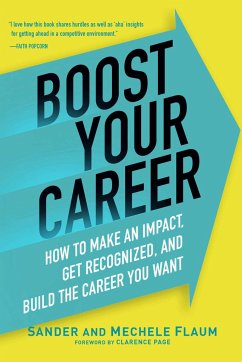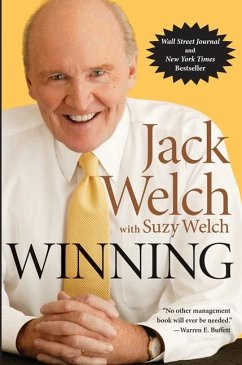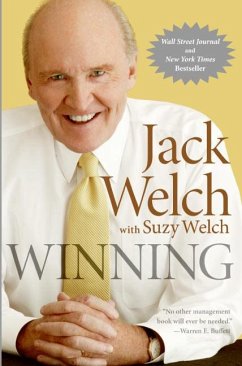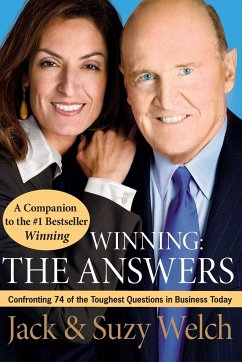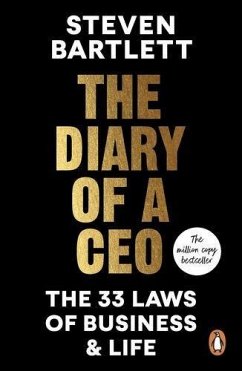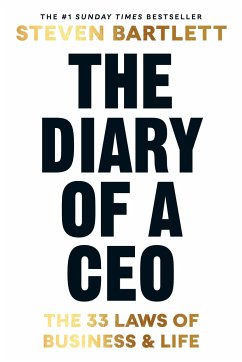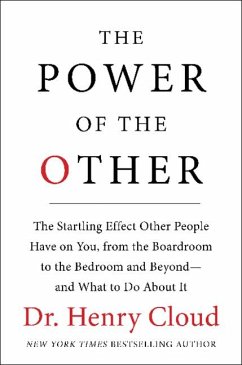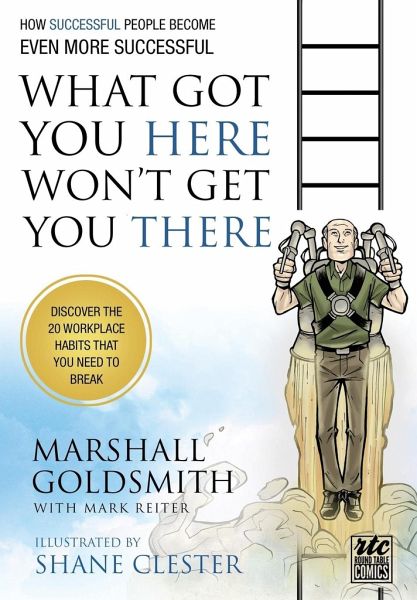
What Got You Here Won't Get You There
How Successful People Become Even More Successful: Round Table Comics
Versandkostenfrei!
Sofort lieferbar
16,99 €
inkl. MwSt.
Weitere Ausgaben:

PAYBACK Punkte
8 °P sammeln!
The corporate world is filled with men and women who have worked hard to reach upper level management. They're intelligent, skilled, and even charismatic. But only a handful of them will ever reach the pinnacle-and as executive coach Marshall Goldsmith shows in this book, subtle nuances make all the difference. These are small transactional flaws performed by one person against another that, using Goldsmith's straightforward, jargonfree advice, are easy behaviors to change. EDITORIAL REVIEWS: From Publishers Weekly Goldsmith, an executive coach to the corporate elite, pinpoints 20 bad habits t...
The corporate world is filled with men and women who have worked hard to reach upper level management. They're intelligent, skilled, and even charismatic. But only a handful of them will ever reach the pinnacle-and as executive coach Marshall Goldsmith shows in this book, subtle nuances make all the difference. These are small transactional flaws performed by one person against another that, using Goldsmith's straightforward, jargonfree advice, are easy behaviors to change. EDITORIAL REVIEWS: From Publishers Weekly Goldsmith, an executive coach to the corporate elite, pinpoints 20 bad habits that stifle already successful careers as well as personal goals like succeeding in marriage or as a parent. Most are common behavioral problems, such as speaking when angry, which even the author is prone to do when dealing with a teenage daughter's belly ring. Though Goldsmith deals with touchy-feely material more typical of a self-help book-such as learning to listen or letting go of the past-his approach to curing self-destructive behavior is much harder-edged. For instance, he does not suggest sensitivity training for those prone to voicing morale-deflating sarcasm. His advice is to stop doing it. To stimulate behavior change, he suggests imposing fines (e.g., $10 for each infraction), asserting that monetary penalties can yield results by lunchtime. While Goldsmith's advice applies to everyone, the highly successful audience he targets may be the least likely to seek out his book without a direct order from someone higher up. As he points out, they are apt to attribute their success to their bad behavior. Still, that may allow the less successful to gain ground by improving their people skills first. (Jan. 2) Copyright © Reed Business Information, a division of Reed Elsevier Inc. All rights reserved. -This text refers to the Hardcover edition. From Booklist By now, the CEO as celebrity is old hat. (Just start counting the books from former company heads.) That goes for the executive-recruiter-cum-president-makers. What has yet to be explored-until now-is the celebrity business coach, the individual who helps C-level executives correct flaws, whether invisible or public. A frequent interviewee in major business magazines like Fortune, Goldsmith, with the sage help and advice of his collaborator Reiter, pens a self-help career book, filled with disguised anecdotes and candid dialogue, all soon slated for bestsellerdom. His steps in coaching for success are simple, honest, without artifice: gather feedback from appropriate colleagues and cohorts, determine which behaviors to change (and remember, Goldsmith specifically focuses on behavior, not skills or knowledge), apologize, advertise, listen, thank, follow up, and practice feed-forward. Admittedly, this shrewd organizational psychologist only works with leaders he knows will listen, follow advice, and change-especially considering that he doesn't receive fees until improvements are secure and visible. On the other hand, these are words and processes anyone will benefit from, whether wannabe manager or senior executive. Barbara Jacobs Copyright © American Library Association. All rights reserved-This text refers to the Hardcover edition.





